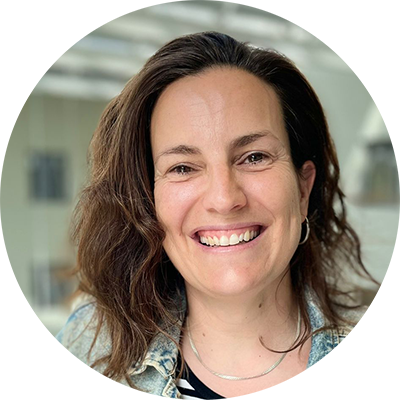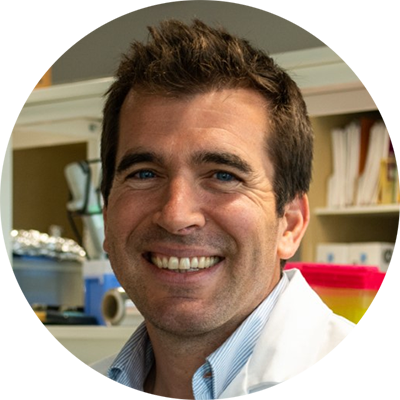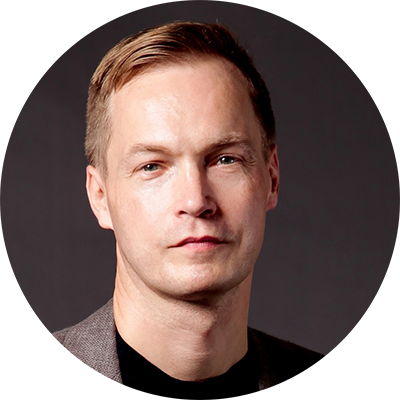Speakers Wednesday 1 february

Mariona Graupera
Group Leader at the Josep Carreras Leukaemia Research Institute (IJC), Barcelona, Spain
The overall goal of the Graupera lab is to understand the mechanisms that regulate the vasculature in development, homeostasis and disease (e.g. congenital disorders, obesity and cancer). She received her training in world-leading laboratories, working with Prof. Jaume Bosch at the Hospital Clinic of Barcelona and Prof. Bart Vanhaesebroeck at the Ludwig Institute for Cancer Research in London. While being a postdoc, she unveiled the requirement of the PI3Kα isoform during angiogenesis. In 2009 she established her lab at IDIBELL in Barcelona. From that moment, she embraced the opportunity to create a multidisciplinary laboratory devoted to study PI3K/PTEN signalling in pathophysiological angiogenesis. In this context, the Graupera lab has made seminal discoveries that are influencing the clinical management of vascular-related diseases. In February 2021, she joined the Josep Carreras Leukaemia Research Institute as Group leader with an interest to study the ties between the hematopoietic and endothelial cell linages. Since June 2022, she serves as president of the European Vascular Biology Organization (EVBO).

Taija Mäkinen
Professor of Lymphatic Vascular Biology at Uppsala University, Sweden
Taija Mäkinen completed doctoral studies at the University of Helsinki, Finland. Following postdoctoral training at the Max-Planck-Institute of Neurobiology in Martinsried, Germany, she established her research group at the Cancer Research UK London Research Institute (now the Francis Crick Institute), before moving to Uppsala University, Sweden. Dr Mäkinen and collaborators are focused on understanding the mechanisms that regulate the lymphatic vasculature in development, homeostasis and disease. A major interest of her laboratory is to elucidate how lymphatic endothelial cells communicate with the tissue environment to co-ordinate morphogenesis and organ-specific functional specialisation of the vasculature, but also to investigate how regulators of developmental lymphangiogenesis impact on genetic human diseases such as lymphedema and vascular malformations.

Guillaume Canaud
Professor Guillaume Canaud is an MD, PhD at hôpital Necker Enfants Malades and Université Paris Cité, Paris, France.
Guillaume Canaud heads the Translational medicine unit and the attached research laboratory. His group is working extensively in the field of PI3K related disorders. Very recently, Guillaume and his group, identified and reported a very promising therapeutic for patients with a rare genetic disorder called PIK3CA-Related Overgrowth Syndrome (PROS). They pushed toward the clinical development of this drug (alpelisib) for patient with PROS. Three clinical trials were launched since 2019 and led to the accelarated US FDA approval on April 6th 2022 of alpelisib for patients with PROS aged of at least 2 years old. He has received several awards including the 2018 Prize Jean Lecocq of the French Academy of Sciences, the 2019 Prize Eloi Collery of the French Academy of Medicine, the 2019 Ville de Paris Jean Hamburger Prize, the 2021 Unsolicited International Triennial Gagna A. & Ch. Van Heck Prize for Incurable Diseases and the 2022 Robert Schobinger Award from the International Society for the Study of Vascular Anomalies.

Salim Seyfried
Professor for Animal Physiology at Potsdam University, Germany
The research team of Salim Seyfried uses developmental genetics in zebrafish combined with cell biological and pharmacological approaches to develop animal models for human cardiovascular diseases. This involves highly interdisciplinary approaches to analyze cardiovascular morphogenesis. Of particular interest is to understand how mechanical forces and biomechanical signaling pathways direct the morphogenesis and (patho-)physiology of endocardium and other endothelial vessel beds. The work involves the generation of a number of zebrafish disease models.

Roberto Latini
Head of the Department of Cardiovascular Research at the Mario Negri Institute for Pharmacological Research, Milan, Italy.
Roberto Latini graduated in Medicine and Surgery in 1978 at the University of Milan, he then specialized in Pharmacological Research at the Mario Negri Institute in Milan. Since 1990 he has been Head of the Cardiovascular Clinical Pharmacology Laboratory of the Mario Negri Institute, where since March 2013 he has been Director of the Cardiovascular Research Department. His fields of professional interest include: Mechanisms of cardiac damage resulting from acute myocardial infarction; Use of stem cells to repair the structural and functional damage resulting from myocardial infarction in the small rodent; Bio-humoral studies in large clinical studies in heart failure and atrial fibrillation in search of new markers of prognosis and response to treatment.
Roberto Latini has been a member of the Steering Committee for a number of randomised clinical trials including ALOFT, ValHeFT, GISSI-HF, GISSI-AF, CandHeart, CYCLE, ALBIOS, ICOS-ONE, <Treat_CCM.

Michael Potente
Professor for Translational Vascular Biomedicine at the Berlin Institute of Health at Charité (BIH) and the Max Delbrück Center for Molecular Medicine (MDC), Berlin, Germany
Michael Potente is a trained cardiologist who combines basic cardiovascular sciences and clinical practice. Michael Potente performed his doctoral studies in the laboratory of Rudi Busse at Goethe University Frankfurt. For his clinical and postdoctoral training, he worked under the joint mentorship of Andreas Zeiher and Stefanie Dimmeler at the same university. After obtaining his board certification in Internal Medicine and Cardiology, he became an independent research group leader at the Max Planck Institute for Heart and Lung Research in Bad Nauheim, where he set up his laboratory parallel to his clinical activities. Michael Potente’s research is supported by national and international funding organizations such as the European Research Council (ERC), the Leducq Foundation and the Deutsche Forschungsgemeinschaft (DFG). He has received several awards for his scientific work, including the Louis N. and Arnold M. Katz Basic Research Award from the American Heart Association and the Albert Fraenkel Prize granted by the German Cardiac Society. He was also selected for the renowned Young Investigator Programme of the European Molecular Biology Organisation (EMBO). His work focuses on the vasculature, particularly the regulation of vascular growth by metabolism. Michael Potente’s laboratory emphasizes collaboration and prioritizes approaches that shed light on fundamental biological principles while also pointing the way towards clinical translation.